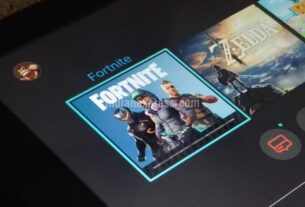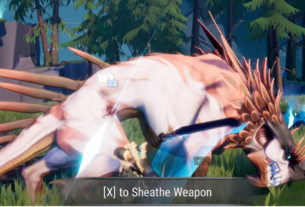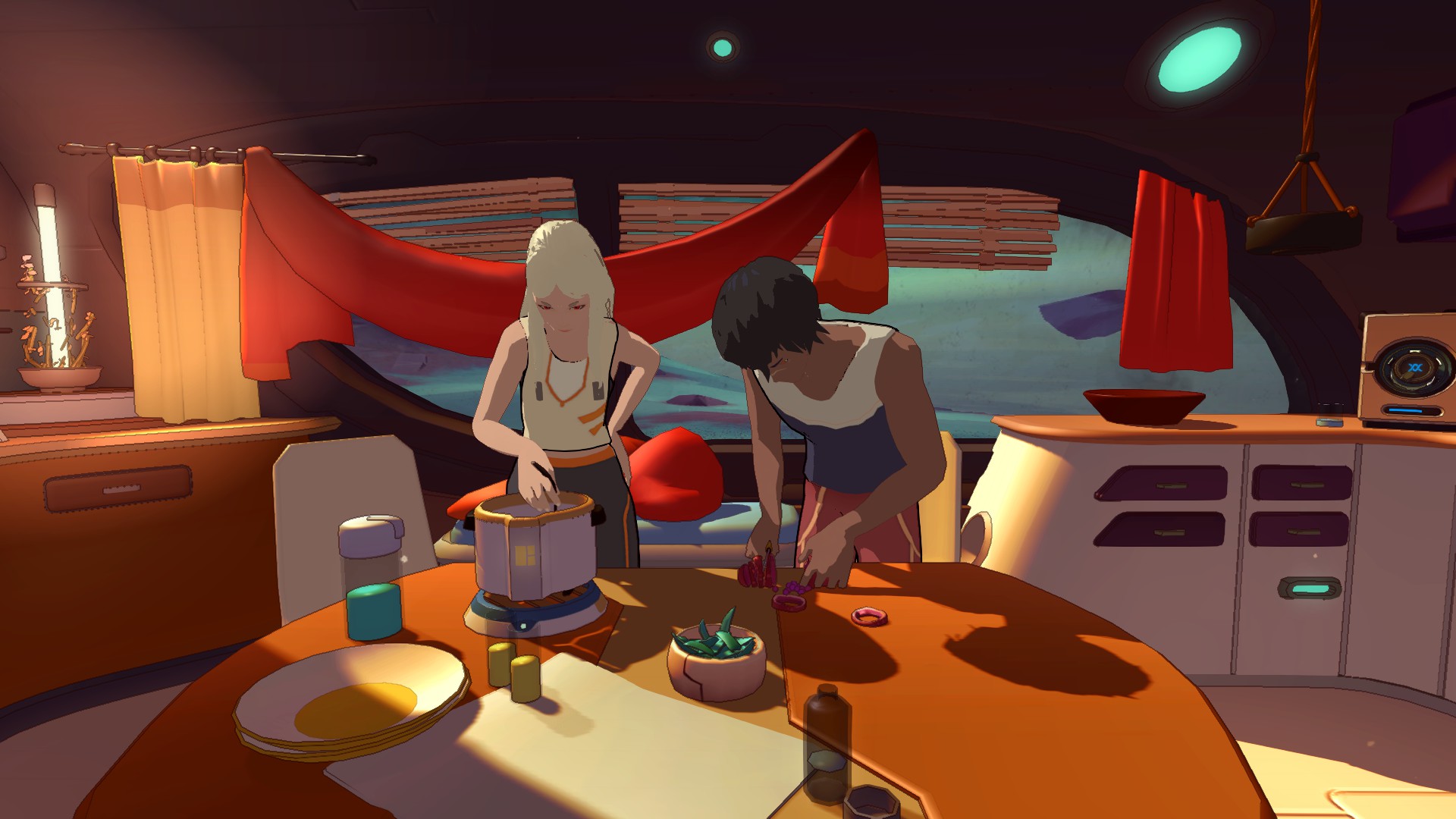
We’ve all fantasised about getting away from it all, haven’t we? Dropping out of the daily grind, the forced small talk and the pressures of civilised living; simply escaping with our favourite person and carving out our own space in the universe. The difference with Yu and Kay is that they’ve actually gone and done it—although the reality they’re facing is less ‘remote luxury villa in the Maldives’ and more ‘broken spaceship on a smashed-up planet’.
Haven is an RPG-slash-visual novel that charges you with exploring Source—as the couple have named their new home world—hunting for components to fix up their battered ship and uncovering its sinister mysteries. The planet is made up of separate chunks of landscape that you need to explore, interconnected by a series of portals called flow bridges.
You tidy up behind you as you go, fighting nasties and hoovering up various plants that can be turned into a range of meals and meds back at base. Refreshingly, you leave everywhere you’ve been rather nicer than you’ve found it—and it’s pleasing to see your map change from magenta to white to reflect this.
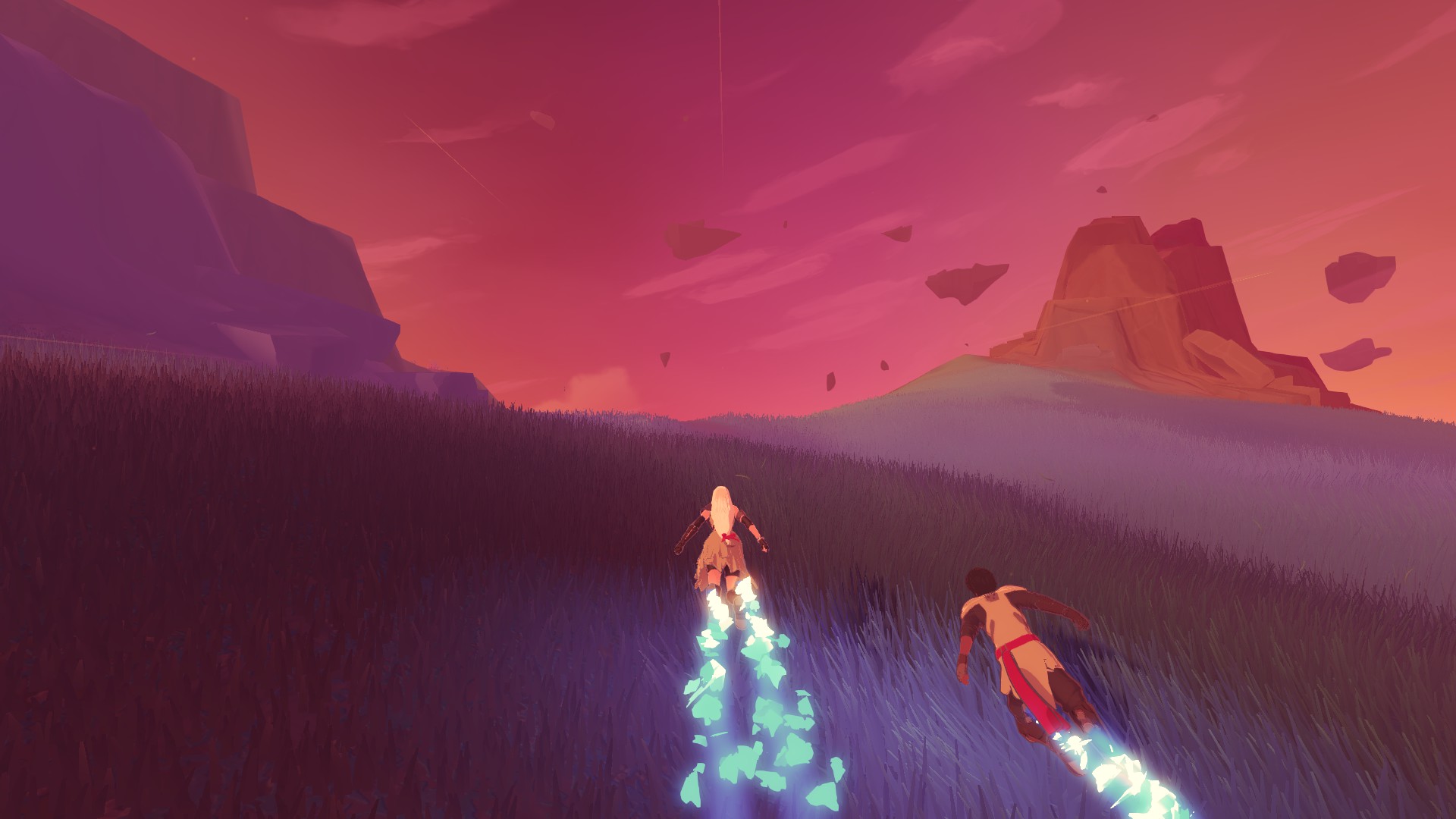
Combat and exploration
Also satisfying is the movement, which is floaty and speedy, with smooth drifting and snappy U-turns. It feels a bit like PS3 cult classic Journey, as you glide over rocks, past reservoirs and up and down slopes. Following ‘flow threads’—which are essentially wiggly blue lines zig-zagging their way across the environment—recharges your batteries and occasionally lifts you upwards to otherwise inaccessible areas. In a simultaneously adorable and nauseating touch, your duo often zoom along holding hands. Ah, young love.
It’s not all pretty vistas and sweet nothings on Source, though. Each islet you encounter is initially covered with crimson rust, which needs clearing up. Doing so is a simple (and sometimes dull) case of zooming across it, picking up chunks of material that can be put to use in repairs or in tonics. The presence of rust also happens to enrage the planet’s native critters, who seem to have made a group decision to take their frustrations out on you.
What ensues with each encounter is a brief scuffle with wildlife gone rogue, playing out in a simplified JRPG combat framework. Using one controller stick to trigger an action for each character, you select from a couple of attacks and a block to batter the opposition to unconsciousness—at which point you can pacify them and send them on their merry way. Syncing up for a dual attack maximises damage, and it’s often a good plan to use one character to shield the other as they bash away, but the limited moveset means that these scuffles quickly become repetitive. Haven isn’t an overly hard game by design, but to me combat felt like a slow attrition rather than a spicy interlude.
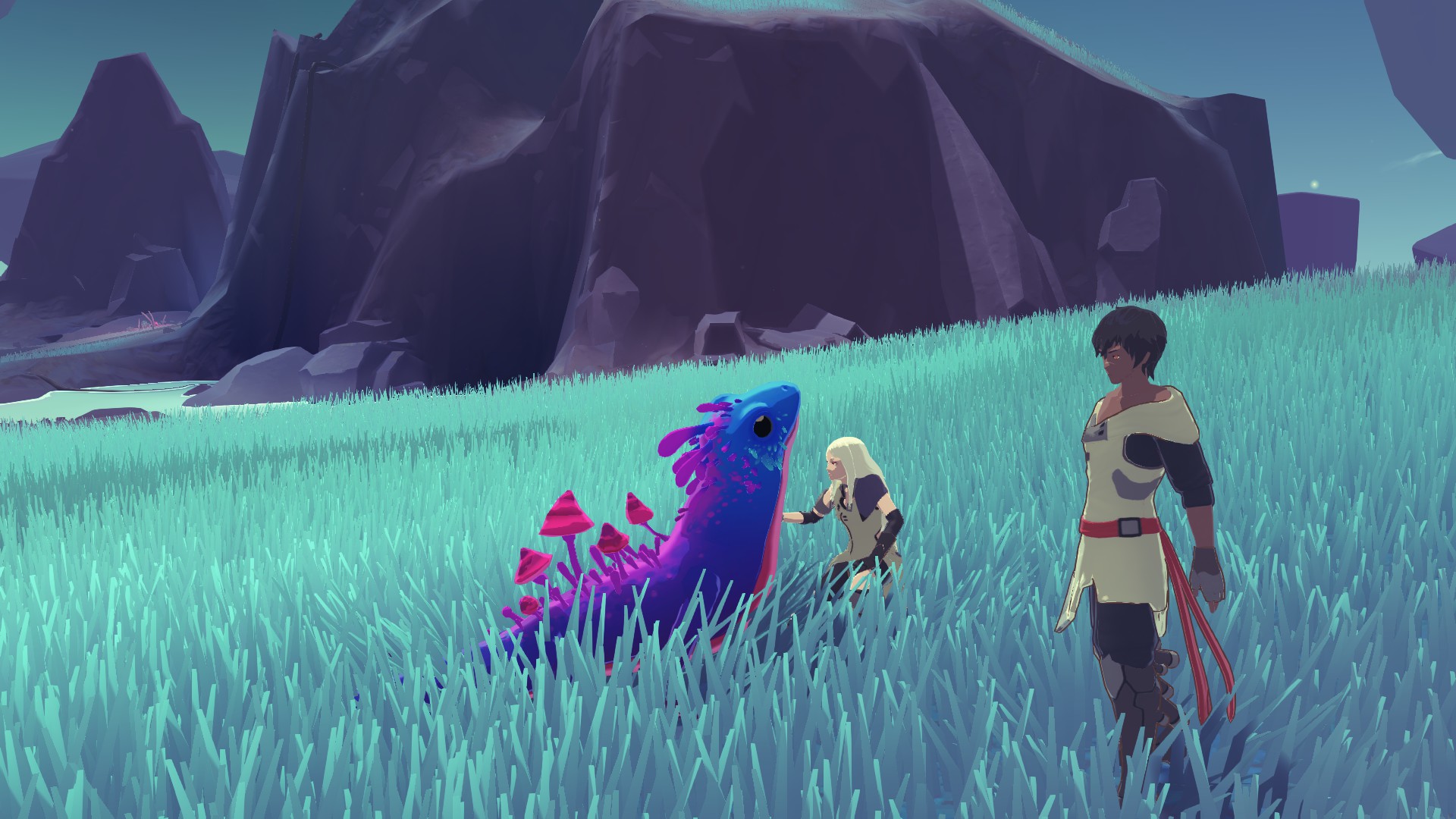
Love and romance
Still Haven is, at its core, a game more about loving than fighting—and it does a great job at this. Yu and Kay’s relationship is the central element here, and it’s skilfully handled. Rather than the awkward flirting and anguished emotions that sometimes mar RPG couplings, these are simply two people who’ve been together for a while and are clearly comfortable in one another’s company. Their banter is easy and natural, running from mundane bickering through to tender nostalgia. It doesn’t shy away from the more intimate moments of their relationship, either, although it thankfully does stop short of cringe-inducingly graphic scenes.
Everything the couple do together—from combat to conversation—helps to strengthen their bond. A particular favourite activity is cooking and eating together, with meals boosting their closeness by varying amounts depending on the tastiness of the dish. Makes sense: who wouldn’t find a Michelin-starred restaurant dish more romantic than McDonald’s? Once you’ve filled up the bond meter, Yu and Kay celebrate by drinking a little home-brewed hooch and getting a little frisky—levelling up their stats as a result.
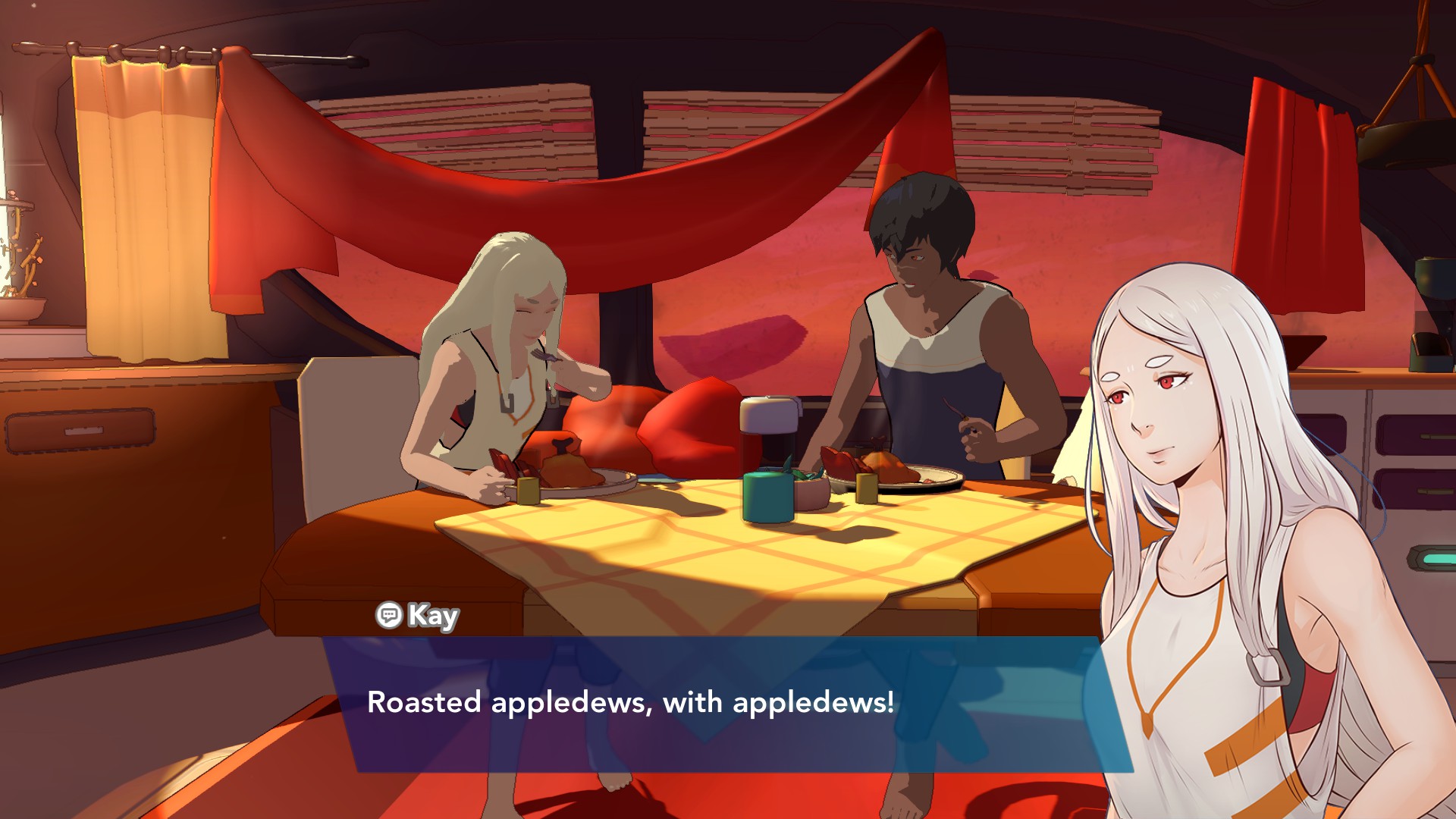
Their conversations serve up the majority of the plot exposition throughout the game, nuggets of which are woven into throwaway remarks or late-night chats snuggled up on the sofa. It feels organic, and each intriguing reference to the world they’ve left behind or why they might have headed off on the run leaves you keen for more. Moments like these were my favourite part of Haven: there’s a lovely sense of cobbled-together domesticity that’s deliberately at odds with the often hostile world outside. I could happily watch a Netflix series about Yu and Kay; I loved spending the game’s evenings simply pottering about the Nest, their cosy spaceship home, watching them fix up dinner, muse about what-might-have-beens or grouse over whose turn it was to clean the shower. Alas, the outside world beckons if you want to make any progress.
My biggest issue with said outside world was that I’d have liked more variety. The islets that make up Source may have different constellations of hills, valleys and abandoned buildings, but there was rarely the thrill of uncovering something other than yet more rust. As such, exploration began to feel more like a chore than something compelling. Frustratingly, investigating buildings involved waiting outside while Yu and Kay’s chatter drifted out through a doorway that the camera didn’t pass through. It does look great, though; all painterly vistas and soothing colours, accompanied by a gently pulsing synth-laden soundtrack.
Co-op—smoothly implemented when you plug in a second controller—forces you to agree with your buddy. Although you’re ostensibly controlling a character each, the only time this really feels like the case is during combat. In conversation, you both have to agree on a dialogue option, and movement becomes a round of follow-the-leader. It’s not an unpleasant experience, but you’re certainly not missing out if you skip it altogether.
Haven’s hook is effective: a relatable couple in an extraordinary situation, rooted by a genuinely interesting backstory. Over the course of it, the visual novel elements work well, with enjoyable dialogue and a relationship that you do feel invested in—but the role-playing is a little too slight to really get your teeth stuck into.


